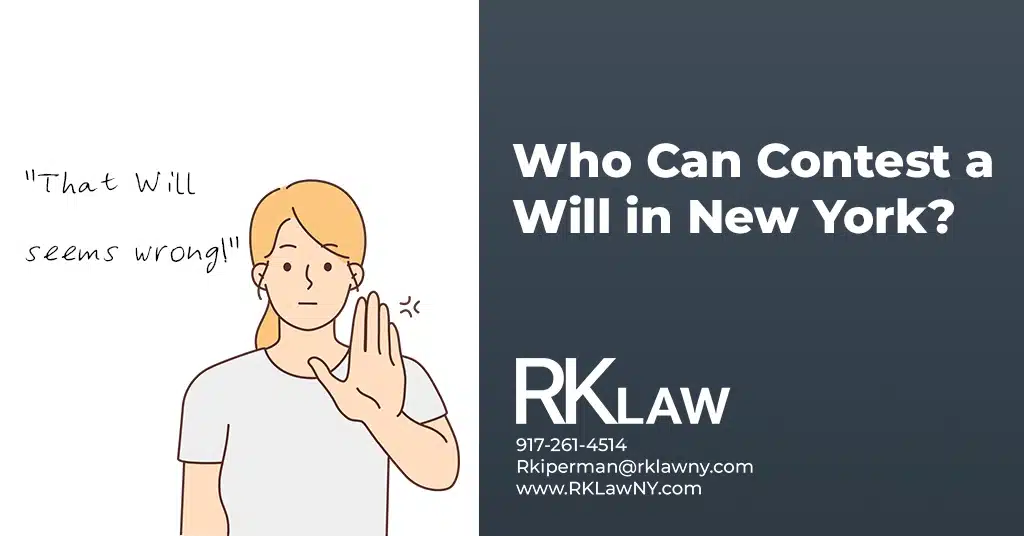In New York, as in many other jurisdictions, there are specific legal procedures in place for contesting a Last Will and Testament. Contesting a Will means challenging its validity.
This is typically done by individuals who believe that the will does not accurately reflect the deceased person’s true intentions, or who have some other legal grounds for contesting it. (For example, lack of capacity, undue influence, fraud, forgery, lack of due execution are grounds to contest a Will).
Who Can Contest a Will in NY?
In order to contest a Will, you must have standing to do so. Here are some of the parties who can contest a will in New York, as outlined in SCPA 1410:
- Persons who are “Adversely Affected” – This means that the potential contestant must stand either to gain by the defeat of the Will, or lose by its admission to probate. If you have nothing to lose by the Will being admitted to probate, then you are not harmed by the Will and you cannot object.
- Interested Parties: Interested parties are those who have a direct financial interest in the will. This includes beneficiaries who would inherit under a previous will or, if there is no previous Will, the intestacy laws of New York. Heirs who would inherit if there were no will may also contest the will. For example, if you received one million dollars under the 2019 will but only one dollar under the 2021 will then you are an interested party who can object to the 2021 Will.
- Beneficiaries: Beneficiaries named in a previous will may contest a new will that disinherits or substantially reduces their inheritance.
- Heirs: Heirs (or distributees), who are individuals related to the deceased person and who would inherit if there were no will, can contest a will if they believe that they are not being provided for as required by law. If you are the Decedent’s brother and you would receive ten thousand dollars if there was no will but one dollar if there is a will, then you can object to the Will.
- Executors and Trustees: In some cases, the executor or trustee of a prior will may contest a newer will if they believe it is invalid or if their role is significantly affected by the changes. However, the fiduciary cannot contest only because they are at risk of losing their commissions.
Can a Creditor Contest a Will?
Generally a Creditor is not among the list of people who can contest a Will.
It’s important to note that contesting a will is a legal process, and not everyone with an interest in the will can do so successfully. To contest a will, one must have legal grounds, such as lack of testamentary capacity, undue influence, fraud, or improper execution.
How Do you Contest A Will?
Typically you start by seeking pre-objection discovery by way of SCPA 1404 examinations. After you have conducted your SCPA 1404 examinations, then the process typically involves filing Verified Objections with the Surrogate’s Court in New York and going through the discovery process.
It’s advisable to consult with an attorney experienced in probate and estate law to understand your specific situation. We can help you figure out if you can contest a Will.
For more information, please contact NYC Probate Litigation, Guardianship, NYC Probate and Estate Planning attorney Regina Kiperman:
Phone: 917-261-4514
Fax: 929-556-2089
Email: rkiperman@rklawny.com
Or visit her at:
40 Wall Street
Suite 2508
New York, NY 10005
Visit Regina on LinkedIn
Visit Regina on Facebook
This page is made available by the lawyer for educational purposes only as well as to give you general information and a general understanding of the law, not to provide specific legal advice. By using this site you understand that there is no attorney client relationship between you and the lawyer. The post should not be used as a substitute for competent legal advice from a licensed professional attorney in your state. ATTORNEY ADVERTISING.
